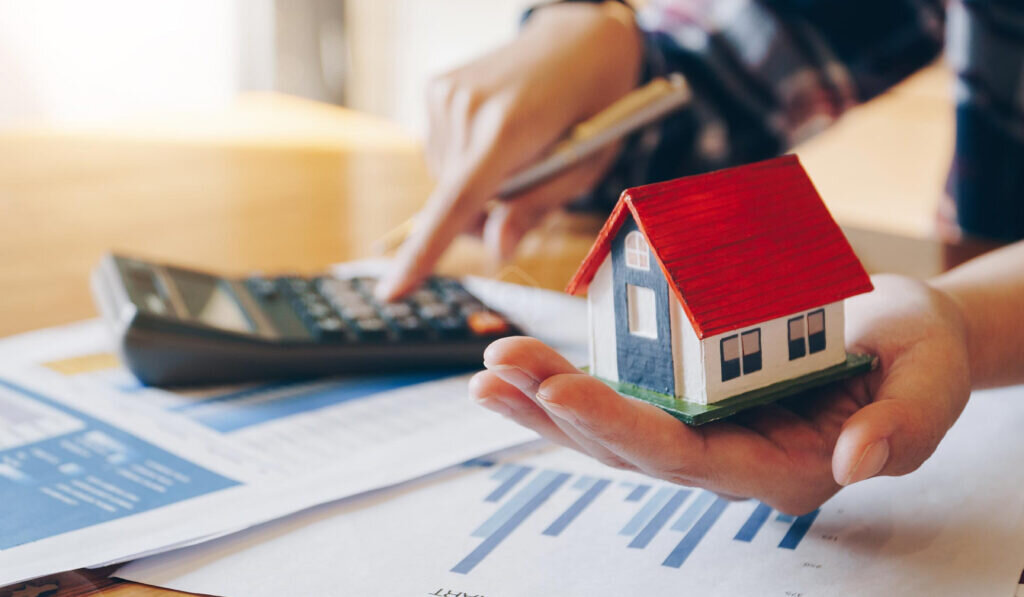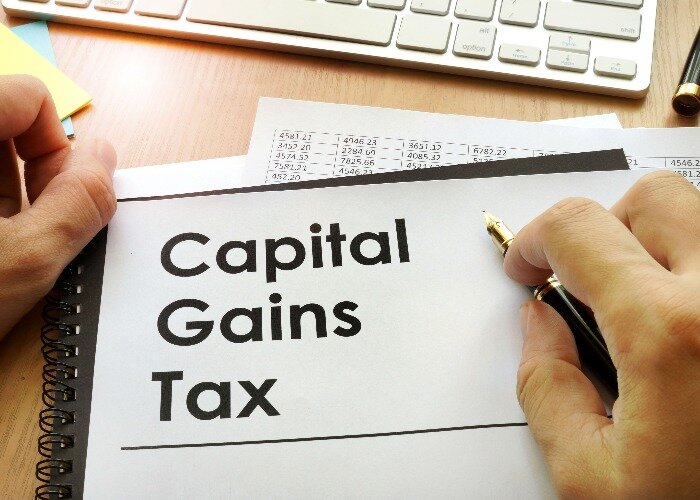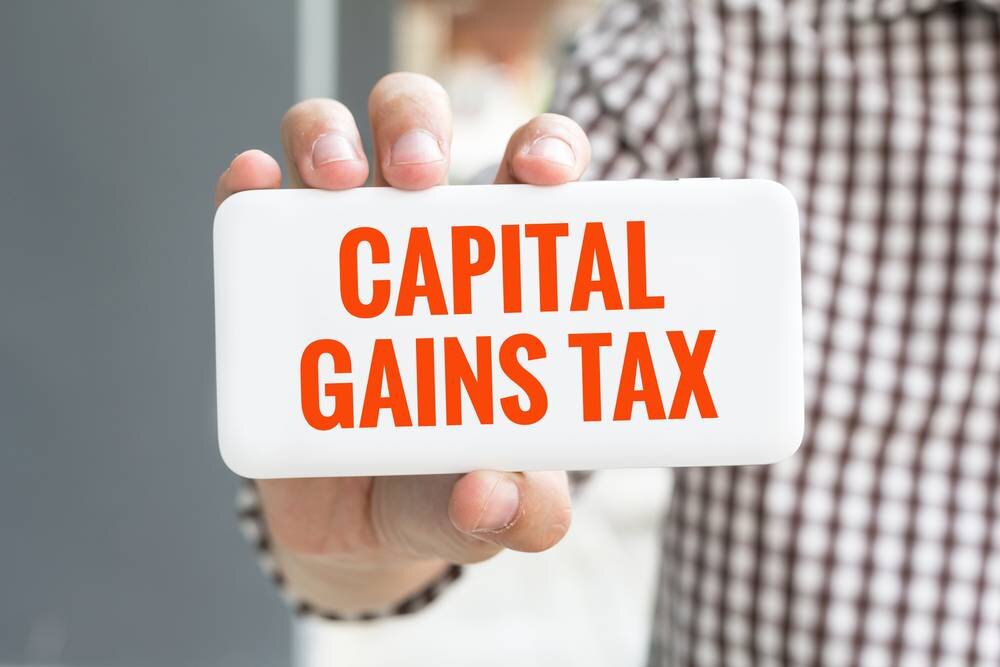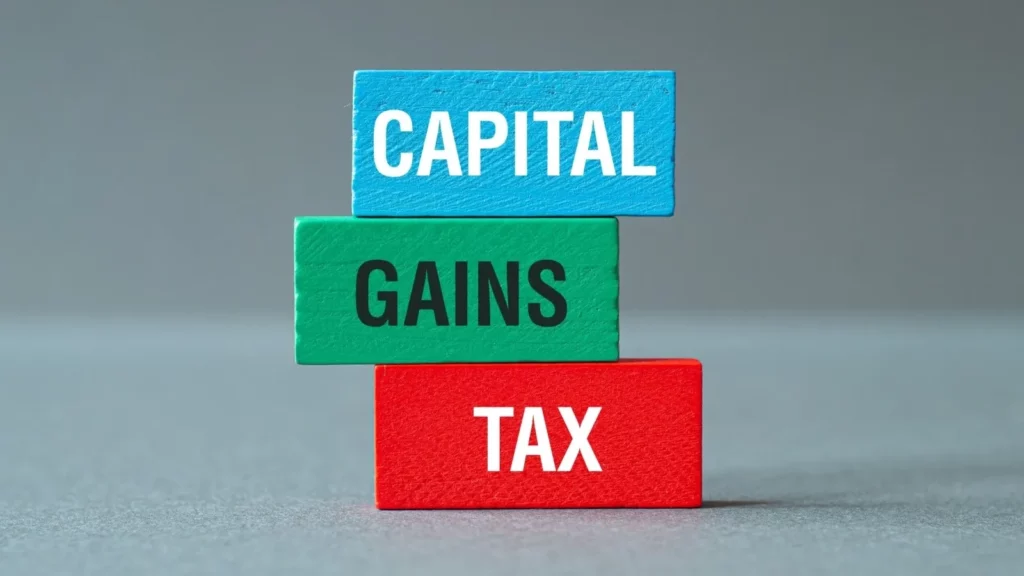
Selling a House With Big Capital Gain Tax?
Learn smart ways to sell your property, minimize tax burdens, and keep more cash in your pocket while avoiding costly delays.
Selling a home, especially one that has appreciated significantly in value, can be both exciting and nerve-wracking. The excitement of a successful sale can quickly be overshadowed by concerns over the capital gains tax that may come with it. After all, if you’ve owned your home for several years and seen its value skyrocket, you could be facing a substantial tax bill. The prospect of parting with a large portion of your sale proceeds can make the decision more complicated than it seems. In this blog, we’ll help you navigate the complexities of capital gains tax and explain how you can minimize the financial burden when selling your property.
What is Capital Gains Tax and Why Does It Matter When Selling Your House?
Capital gains tax is a tax on the profit you make from the sale of an asset, such as a home. When you sell a property for more than you paid for it, the difference is considered your profit, and that’s what the IRS taxes. If you’ve owned the property for a while, it’s very likely that its value has increased significantly, meaning you could be facing a hefty tax bill.
Short-Term vs. Long-Term Capital Gains Tax
The tax you’ll owe depends on how long you’ve owned the property. If you sell your home within a year of purchasing it, you’ll face short-term capital gains tax, which is taxed at the same rate as your regular income—anywhere from 10% to 37%, depending on your income level. If you’ve owned the property for longer than a year, you qualify for long-term capital gains tax, which generally has a more favorable tax rate, ranging from 0% to 20%, depending on your taxable income.
For example, imagine you bought your home for $200,000 and sold it for $500,000, earning a $300,000 profit. If you’ve owned the house for less than a year, you might pay a short-term capital gains tax of 24%, meaning you’d owe $72,000 in taxes. If it’s been over a year, and you qualify for the long-term rate of 15%, you would pay $45,000 in taxes—saving you $27,000.
How Are Capital Gains Tax Calculated on Your Home Sale?
The calculation for capital gains tax isn’t as straightforward as simply subtracting your original purchase price from your sale price. Several other factors can affect the amount of profit you’ll be taxed on.
To better understand how capital gains tax is calculated, Investopedia’s Capital Gains Tax Overview provides an in-depth explanation of how factors like selling price, cost basis, and home improvements can impact your tax bill.
The Basic Formula
- Selling Price: This is the amount you sold your house for. For example, let’s say you sold your house for $500,000.
- Selling Costs: These include fees for real estate agents, closing costs, repairs, and improvements you made to the house. For example, if you spent $20,000 in selling costs, this will reduce your taxable gain.
- Original Purchase Price: This is how much you paid for the property when you originally bought it. If you bought your home for $200,000, the difference between your selling price and the original price is your capital gain.
Formula:
Selling Price – Selling Costs – Purchase Price = Taxable Gain
$500,000 – $20,000 – $200,000 = $280,000 taxable gain.
So, your taxable capital gain in this case would be $280,000.
Taxable Gain vs. Exclusions and Deductions
The IRS offers homeowners a significant benefit in the form of an exemption. If you’ve lived in the property as your primary residence for at least two years out of the last five, you can exclude up to $250,000 of your gain if you’re single, or $500,000 if you’re married and filing jointly.
For example, if you made $280,000 in profit and are married, you could exclude the full amount of the gain, meaning you wouldn’t owe any capital gains tax. However, if your gain exceeds the exclusion limit, the remaining amount will be taxable.
How to Minimize Capital Gains Tax When Selling Your Home

There are several strategies you can use to minimize the amount of capital gains tax you owe when selling your home. While it’s impossible to avoid taxes entirely, these strategies can significantly reduce the burden.
1. Take Advantage of the Primary Residence Exclusion
One of the most powerful tools for reducing your capital gains tax is the primary residence exclusion. If you’ve lived in the home for at least two years out of the last five, you can exclude up to $500,000 in gain if you’re married or $250,000 if you’re single. This exclusion can significantly lower the amount of profit that is taxable.
For example, if you made $450,000 on the sale of your home and qualify for the full exemption, you wouldn’t owe any capital gains tax at all. This exemption can save you tens of thousands of dollars.
2. Offset Gains with Losses (Tax Loss Harvesting)
If you have other investments that have performed poorly, such as stocks, bonds, or mutual funds, you can offset your capital gains by selling those investments at a loss. This strategy, known as tax loss harvesting, allows you to use those losses to reduce your overall taxable gains.
For instance, if you have $50,000 in gains from your home sale but also have $20,000 in losses from selling stocks, you can offset the $50,000 with the $20,000 loss, lowering your taxable gain to $30,000.
3. Consider a 1031 Exchange for Investment Properties
If you’re planning to reinvest the proceeds from your home sale into another investment property, you might be eligible for a 1031 exchange. This strategy allows you to defer paying capital gains tax on the profit from the sale, as long as the proceeds are used to purchase another property of equal or greater value.
With a 1031 exchange, you can use the profits from selling your property to purchase a new investment property without immediately triggering a capital gains tax bill. For example, if you sell a property for $500,000 and instead of pocketing the profit, you reinvest that amount into a $500,000 rental property, you can defer paying capital gains taxes until you sell the new property in the future. This can be a great way to grow your real estate portfolio without losing a significant portion of your profit to taxes.
It’s important to note that 1031 exchanges are only available for investment properties, not for personal residences. If you’re selling a primary residence, this option would not be applicable.
For a detailed explanation of the rules, requirements, and timelines for a 1031 exchange, you can read Bankrate’s comprehensive guide on 1031 exchanges, which covers everything you need to know.
4. Sell During a Low-Income Year
If possible, consider timing your sale when your income is lower than usual. This strategy works because the IRS taxes capital gains based on your total income. Selling your home during a low-income year could place you in a lower tax bracket, which would lower the rate at which your capital gains are taxed.
For example, if your income typically places you in the 24% tax bracket but in a given year you expect your income to drop, you might qualify for a 15% tax rate on your capital gains, saving you money.
5. Consult a Tax Professional
Because the rules surrounding capital gains tax can be complicated, it’s a good idea to consult with a tax professional. A tax expert can help you understand the full scope of exemptions and deductions available to you, ensuring you take advantage of every opportunity to reduce your tax burden.
Disadvantages of Selling a House with Big Capital Gains Tax
Even though there are ways to minimize your capital gains tax, there are still several disadvantages to consider when selling a property that has appreciated significantly in value.
1. Potentially Large Tax Bill
Even after applying exemptions and deductions, you might still face a significant tax bill. The higher your gain, the higher the potential tax burden. For example, if you made $500,000 in profit, you might still owe taxes on a portion of that gain, depending on your exemptions.
2. Complexity of the Process
The process of calculating and minimizing your capital gains tax can be complex. Understanding what qualifies for exclusion, navigating the 1031 exchange rules, and making sure you’re applying the right tax strategies requires a level of expertise that most homeowners don’t have.
3. Delays in the Process
Timing the sale of your home to minimize taxes can delay the process. If you’re trying to sell quickly but need to wait for a particular tax year or meet certain residency requirements, it could cause you to miss out on other opportunities.
4. Emotional Stress
The possibility of a large tax bill can add emotional stress to the process of selling your home. Instead of focusing on your next chapter, you may find yourself worrying about how much you’ll owe and whether you’ve done enough to minimize your tax liability.
Understanding the Capital Gains Tax Exemption for Primary Residences

When selling your primary residence, one of the most valuable tools you can use to reduce your capital gains tax burden is the capital gains tax exemption provided by the IRS. The rules around this exemption can be quite beneficial for homeowners, potentially allowing them to exclude a significant portion of their gain from being taxed. However, it’s important to understand the qualifications and conditions that apply.
Qualifications for the Exemption
To qualify for the exemption, you must meet the following requirements:
- Ownership and Use Tests: You must have owned the home for at least two years out of the last five years before the sale, and the home must have been your primary residence for at least two years during that same time frame. The two years don’t have to be consecutive.
- Exclusion Limitations: If you’re single, you can exclude up to $250,000 of the gain on the sale of your home. If you’re married and filing jointly, you can exclude up to $500,000. If your gain exceeds these amounts, you’ll only pay tax on the profit beyond the exclusion limit.
Example of How It Works
Let’s say you bought your home for $200,000, and over the years, the property appreciated in value. You now sell it for $600,000, making a profit of $400,000. If you’re married and have lived in the home for at least two years out of the last five, you could potentially exclude the entire $400,000 gain from tax, avoiding any capital gains tax at all. However, if your gain was $600,000, you would only exclude $500,000, and the remaining $100,000 would be subject to tax.
Capital Gains Tax on Investment Properties vs. Primary Residences
Another factor to consider is the distinction between the tax treatment of primary residences and investment properties. If the house you’re selling isn’t your primary residence, the capital gains tax rules can be a lot stricter, and you may not qualify for the exemption that comes with selling your primary home.
Investment Property Sales and Capital Gains Tax
When you sell an investment property, such as a rental property or a second home, you’ll face a different tax structure. Capital gains from the sale of investment properties are generally not eligible for the same exemptions as those for primary residences. That means the full amount of the gain will be taxable, subject to either short-term or long-term capital gains tax, depending on how long you’ve owned the property.
In addition, if you’ve claimed any depreciation on the property during your ownership (a common practice with rental properties), the IRS requires you to “recapture” that depreciation when you sell, adding an additional tax liability. This can result in an even higher tax bill than you might expect.
1031 Exchange: A Strategy to Defer Taxes on Investment Property
If you’re selling an investment property and want to defer the capital gains tax, one option is to use a 1031 exchange. This strategy allows you to defer paying taxes on your capital gain by reinvesting the proceeds from the sale into a like-kind property. This is a popular option for real estate investors who want to avoid paying taxes while continuing to invest in other properties.
For example, let’s say you sell an investment property for $500,000 and make a $200,000 profit. By using a 1031 exchange, you can reinvest the $500,000 into another property and avoid paying taxes on that $200,000 gain until you sell the new property in the future.
The Risks of Not Planning Ahead for Capital Gains Tax

One of the biggest mistakes homeowners make when selling a property with a large capital gain is not planning ahead for the tax implications. Without proper planning, you could be left facing a large, unexpected tax bill that could undermine the profits you made from the sale of your home. Here’s why it’s important to think ahead:
Underestimating the Tax Impact
Many homeowners assume that they won’t need to pay taxes on their gains, especially if they are unaware of the exemptions or tax strategies available to them. However, unless you meet the requirements for the primary residence exemption, you will likely owe taxes on the full amount of your capital gain. Not factoring this in can result in an unpleasant surprise come tax time.
For instance, imagine you sell your house for $700,000 and make a profit of $400,000. If you didn’t account for capital gains tax, you might expect to pocket the full $400,000. However, without the right exemptions or tax planning, you could end up owing 15-20% of that amount in taxes, which would reduce your profit by $60,000 to $80,000.
The Risk of Delays and Penalties
Not planning ahead for taxes can also cause delays in your sale. If you’re unsure of the tax implications and don’t get professional advice in time, you could delay your sale, miss tax deadlines, or even incur penalties. It’s crucial to have a clear understanding of your tax situation before you finalize the sale to avoid unnecessary setbacks.
Selling for Cash to Simplify the Process
One way to avoid some of these risks is by selling your home for cash. A cash sale eliminates many of the complexities that come with traditional sales, including dealing with appraisals, financing, and inspections. Selling for cash also means you can potentially close the sale faster, giving you more time to plan for any taxes that may arise.
Is Selling a House for Cash a Better Option to Avoid Capital Gains Tax?
One of the key advantages of selling your home for cash is that the process tends to be much faster and more streamlined. There are fewer fees involved, and since cash buyers typically don’t require inspections or repairs, the sale is less likely to result in any unforeseen costs that would increase your taxable gain.
When you sell your home for cash, you may also have more control over the timing of the sale, allowing you to close quickly and avoid unnecessary delays. This can help you manage your finances more effectively and reduce the stress of dealing with a large tax bill.
In addition, selling for cash can often bypass many of the complications that come with traditional home sales, giving you peace of mind while allowing you to maximize your profit.
